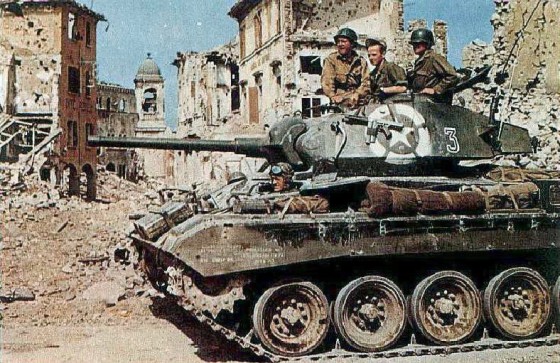
“The Southern leadership dusted off a tried and tested strategy Americans had used to in both the Revolution and the War of 1812 to stand up to the Royal Navy. They turned to privateers.”
WHEN THE Confederacy went to war in April, 1861, the 11 secession states had virtually no navy. The Union on the other hand had 42 vessels with Yankee shipyards up and down the eastern seaboard gearing up to churn out more.
The Rebel president Jefferson Davis and his naval affairs chairman Stephen R. Mallory realized the secession states needed ships and needed them fast. The Union fleet would soon be putting a stranglehold on Southern shipping; it was up to the two men to plan the Confederacy’s response. Both knew that even a rapid ship-building program would fall short of providing enough vessels to challenge the Yankee blockade, so the Southern leadership dusted off a tried and tested strategy Americans had used to in both the Revolution and the War of 1812 to stand up to the Royal Navy. They turned to privateers.

Sailors of Fortune
Privateers were privately outfitted and operated warships licensed by a nation to take vessels, particularly merchant ships, belonging to an enemy power. Privateer crews, like their illegal pirate brethren, are paid out according to the value of the ships and cargoes they seize. The more prizes taken, the higher the pay for a privateer crew – and by extension, the greater the damage to enemy commerce.
The Confederacy announced it would issue letters of marque to Southern ship owners, enabling them to arm their schooners and sloops and seek out enemy merchant ships to capture. The South’s navy department also promised big cash rewards to any privateer that sank or captured Union warships.
Davis and Mallory hoped the privateers would help the rebellion in a number of ways. First, the disruption of Yankee shipping, if widespread enough, might push the North to the peace table. The strategy would also force the Union to redeploy ships to protect their own merchant fleet, thereby reducing the number of vessels blockading Southern ports. This would enable more Rebel blockade runners to slip though the Yankee cordon with much-needed supplies. As an added bonus, Southern authorities would also benefit from the cargoes captured by the privateers.

Pirates!
There was one significant flaw in the scheme: while privateering had been a legally-recognized practice dating back at least 500 years, an international maritime accord signed in 1856 known as the Declaration of Paris had outlawed the practice once and for all. All privateers were considered pirates by signatory countries and piracy was punishable by death. While the U.S. had abstained from the agreement in 1856, President Lincoln made it clear that a similar fate awaited any Southern crews taken while serving on privateer ships. For good measure, Federal diplomats appealed to European powers to allow the United States into the treaty, albeit belatedly.

A Booming Business
Despite the risk of the noose, Southern ship owners and sailors (and even a few profit-minded Northern ones as well) flocked to seaports like Charleston and New Orleans looking for letters of marque. And they received them — a total of 99 commissions were issued in the first weeks of the war.
The first victory by a southern privateer came within a month. In May of 1861, a southern privateer, the J.C. Calhoun, seized the Yankee trader Ocean Eagle in the Gulf of Mexico. Ironically, the merchant ship was bound for New Orleans with a cargo of fruit; the first prize taken by a Confederate privateer actually disrupted Southern commerce — an inauspicious start to be sure.
Soon, more Confederate privateers were in action in the Caribbean, the Gulf of Mexico and up and down the east coast of the United States.
One such vessel, the Savannah, scored a quick victory near Charleston on June 2. She in turn was herself captured by the USS Perry, and all on the second day of her maiden voyage! An early public relations victory for the Union, the Savannah’s skipper, Thomas Baker along with the ship’s 12 crewmen found themselves indicted as pirates and on trail for their lives in a Northern court. The outraged Confederacy threatened to retaliate by hanging captured northern seamen if Baker and his men were given the noose. The Union relented in the face of Confederate bluster and dropped the charges of piracy, instead holding the crew as prisoners of war. They were traded later in a prisoner exchange.
Ending the Terror of the Seas
The most successful Confederate privateer was the Jefferson Davis. In a two-month period beginning on June 28, 1861, the 187-ton one-time slave ship sailing out of Charleston took nine northern merchant vessels as prizes. While escaping unscathed from battle, the Davis foundered off St. Augustine, Florida in a gale. All but two of her prizes were either sunk themselves or recaptured by the North. No other Southern privateer ships achieved this level of success.
By the end of the first summer of the war, most of the once-enthusiastic Confederate privateer captains and their crews weighed the growing risk of capture with the slim chance for plunder and decided to give up their letters of marque. A handful continued to sail, but none had much success.
Centuries of privateering ended with the Confederacy. The voyages of the Savannah, the Jefferson Davis, the J.C. Calhoun and others like them marked the last time privateers would sail in the name of a maritime power. The days of privateering were over.










Not hardly………. Southern privateers wrecked havoc among the Northern whale ships in the Pacific.